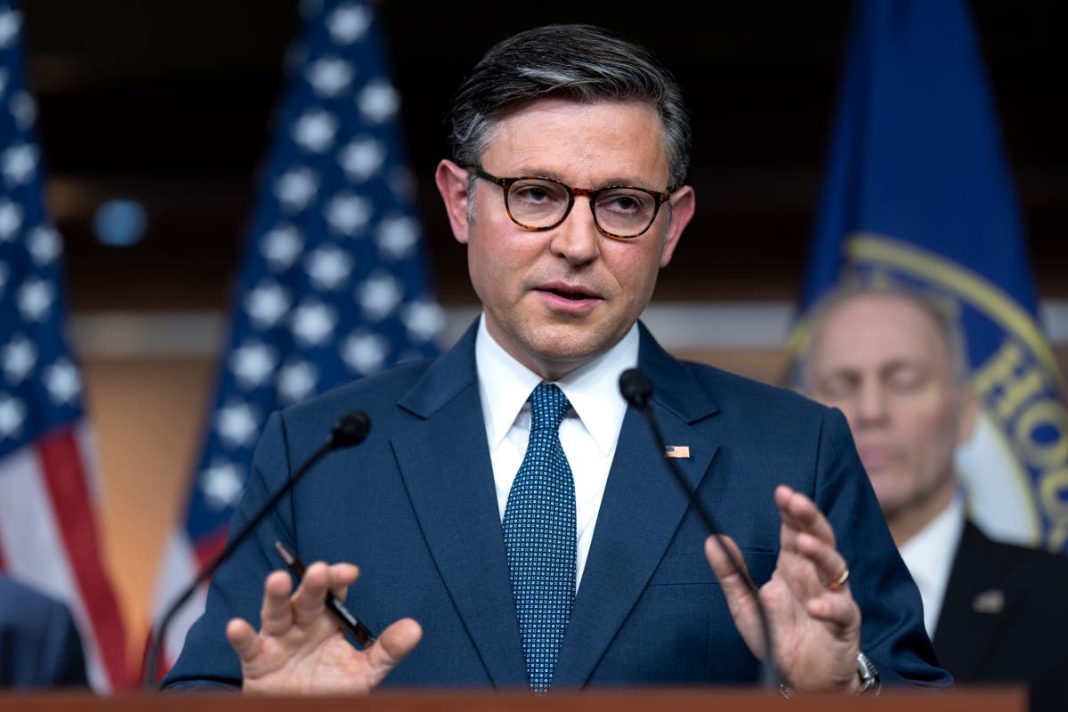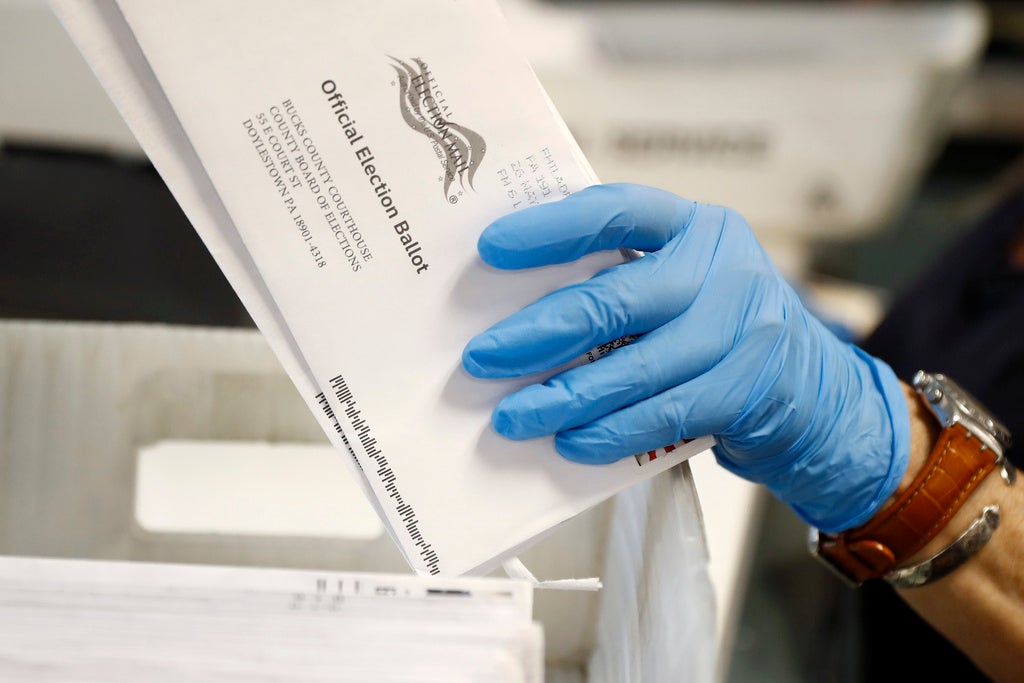Republican Leaders Sidestep Election Integrity Questions as Trump’s Influence Looms Large
In a striking display of political maneuvering, Republican leaders continue to dodge straightforward questions about the integrity of the upcoming election, particularly regarding the 2020 results. House Speaker Mike Johnson’s recent appearance on ABC’s This Week has reignited concerns about the GOP’s commitment to accepting electoral outcomes, regardless of who emerges victorious in November.
During the interview, host George Stephanopoulos posed a direct question that has become a litmus test for Republican candidates: “Can you say unequivocally that Joe Biden won the 2020 election and Donald Trump lost?” Johnson, however, sidestepped the query, dismissing it as a “gotcha game.” Instead of addressing the question, he insisted that the focus should be on the future and the challenges facing the American people, stating, “We’re not going to talk about what happened in 2020.”
This reluctance to acknowledge the past is not an isolated incident. Johnson’s non-committal responses echo a broader trend among GOP leaders, many of whom remain hesitant to confront the fallout from the 2020 election. When pressed about Trump’s assertion that “the only way that Donald Trump loses is that the Democrats cheat,” Johnson’s vague response—“Donald Trump’s going to win”—left much to be interpreted. His comments seemed to reflect an underlying anxiety about the party’s direction and the former president’s continued grip on its narrative.
Interestingly, Johnson did make a nod to reality when he remarked, “Joe Biden has been the president for almost four years. Everybody needs to get over this and move forward.” Yet, his repeated references to Trump’s “massive” crowds during the interview hinted at a desire to appease the former president’s base, suggesting that he was acutely aware of Trump’s watchful eye.
Lara Trump, the former president’s daughter-in-law and co-chair of the Republican National Committee, echoed Johnson’s evasiveness during her appearance on CNN’s State of the Union. When asked if there was any scenario in which Donald Trump would concede defeat, she replied, “Of course,” but quickly shifted the focus to the need for a “free, fair and transparent election.” This statement, while seemingly reassuring, was undercut by her acknowledgment of the “lost faith” many Americans have in the electoral system—a sentiment that has been fueled by Trump and his allies since the 2020 election.
Dana Bash, the CNN host, reminded viewers that there was “no evidence of widespread fraud” in the last election, a fact that has been consistently ignored by Trump and his supporters. This ongoing narrative of distrust in the electoral process raises significant concerns about the potential for unrest should the election results not align with Trump’s expectations.
As the election approaches, Trump’s rhetoric continues to cast a long shadow over the GOP. He has recently stated that this campaign will be his last, regardless of the outcome. However, President Joe Biden has raised alarms about the implications of Trump’s messaging, suggesting that the upcoming election may not conclude peacefully.
In a political landscape increasingly defined by disinformation and distrust, the reluctance of Republican leaders to affirm the legitimacy of past elections poses a troubling question: What will happen if the results of the November election do not go Trump’s way? As the party grapples with its identity and the influence of its most prominent figure, the stakes have never been higher for American democracy.



